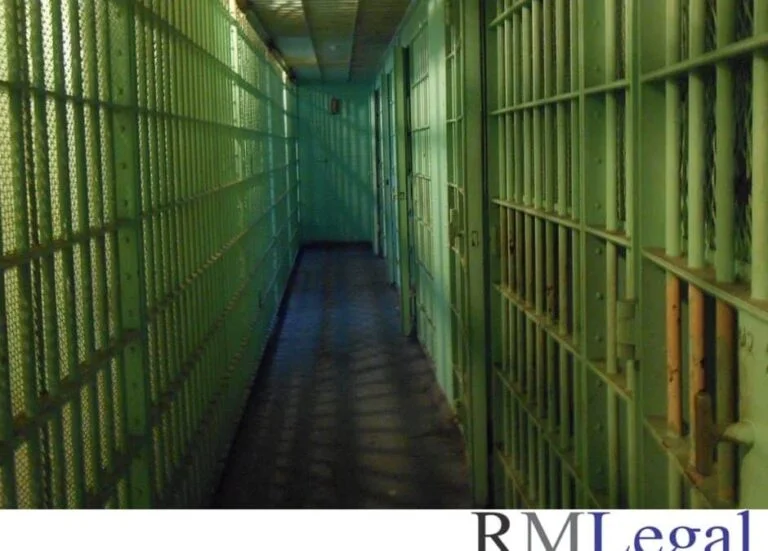Steps In A Louisiana Criminal Case
Being arrested and accused of a crime can be a scary and confusing experience. According to the Law Offices of Lonny Fish in Philadelphia, a Louisiana criminal court case can have multiple parts and it can be difficult to know what is happening at each stage of the case. While each case in unique, there are several common steps that you can expect in your case. Some criminal cases resolve very quickly and some drag on for months or even years. Some cases may have only one or two court appearances and other cases may require several court appearances. How long your case will take to resolve can depend on several things, such as the complexity of your case, the weight of the evidence against you, the availability of witnesses, and whether your case ends in a plea agreement or goes to trial. There can be strategic reasons to push a case to trial or to delay a case, and an experienced criminal defense attorney can help you decide which strategy is best for your case. This article will discuss the most common steps in a criminal case in a Louisiana state court and what to expect at each.
ARREST
A criminal proceeding usually begins with an arrest. When a police offer arrests you, the officer will charge you with the crime that he or she thinks you’ve committed. What you are formally accused with is up to the District Attorney for the parish that you are arrested in. Your actual criminal charges can be different from what you were arrested for.
BAIL BOND
Most people arrested in Louisiana are entitled to a have bail set. Bail is an amount of money or property the court will accept in order to allow someone to be released from jail while a case is pending. After a person is arrested, he or she has to be brought before a judge within 72 hours to determine if a public defender will be appointed. The court can also set a bail amount at the hearing. These hearings are often done from the jail through a video conference. Judges will often set bail before the video hearing by looking at what a person is charged with and his or her criminal background.
BILL OF INFORMATION OR INDICTMENT
Criminal prosecutions start in one of two ways – either by an indictment from a grand jury or by a bill of information filed by a prosecutor. If you’re charged with a crime punishable by death or life imprisonment, the charges have to be brought before a grand jury. A grand jury is a group of twelve people that the prosecutor presents evidence to and then asks them to charge someone with a crime. Other criminal prosecution can be brought by a bill of information, which is simply a piece of paper signed by a prosecutor.
For most crimes, when a person is arrested and is unable to bond out of jail, an indictment or bill of information has to be filed within 45 days if he or she is charged with a misdemeanor and within 60 days if he or she is charged with a felony. The State has 120 days to get an indictment if the defendant is charged with a crime punishable by death or life imprisonment. If a person has posted a bond and is no longer in jail, the State has 90 days to charge him or her with a misdemeanor and 150 days to charge him or her with a felony.
ARRAIGNMENT
Once the indictment or bill of information is filed, the defendant should be arraigned within 30 days. At arraignment the defendant will be told what he or she is being charged with and will enter a plea to the charge. The defendant’s initial plea will almost always be “not guilty.”
MOTIONS HEARING
Once the initial plea is entered, the court will give the defendant fifteen days to file what are called pre-trial motions. There are several common pre-trial motions, and an attorney will be able to determine which ones need to be filed. The court will also set a date for those motions to be heard, which is usually 30 to 60 days after the arraignment date. It is not uncommon to have more than one date for motions in a criminal proceeding.
STATUS CONFERENCES OR PRE-TRIAL CONFERENCES
At a status conference the court will meet with both sides to see how the case is moving along. Pre-trial conferences usually happen much closer to trial for the court and the parties to discuss any issues that need to be resolved before the case is ready for trial. These conferences often happen in court but sometimes will happen in the judge’s conference room. When they happen in the conference room, only the attorneys will be allowed to go back.
GUILTY PLEA CUTOFF
Some courts set a hearing for the defendant to come to court and either formally accept or reject any offer made by the State. After this date, any offer made by the State may no longer be available.
TRIAL
If the case does not get worked out in any of the earlier hearings, it will get set for a trial. Misdemeanors are tried before a judge in what is called a bench trial. If you are charged with a felony, you are entitled to a jury trial. The jury will consist of six or twelve people depending what you are charged with.
APPEAL
An appeal is a request to a higher court to review the judgment of a trial court. Anyone convicted of a felony has a right to an appeal. The appellate court will not reconsider all of the facts of the case but will review the proceedings at the trial court level to determine if everything was done properly. There is no right to appeal a misdemeanor conviction in Louisiana but a higher court will have discretion to review the conviction. The procedure for appealing a misdemeanor conviction in Louisiana varies from parish to parish.
SPEAK TO AN ATTORNEY
If you or a loved one are dealing with a criminal case in Louisiana, and you have questions about the process, call our office today to schedule a consultation. An experienced Louisiana criminal defense attorney will discuss your case with you and can help you prepare a defense to the allegations. Call Big River Trial Attorneys at (225) 963-9638 today.


